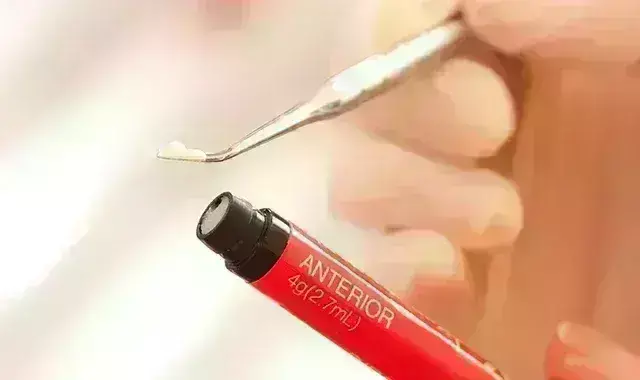- Home
- Medical news & Guidelines
- Anesthesiology
- Cardiology and CTVS
- Critical Care
- Dentistry
- Dermatology
- Diabetes and Endocrinology
- ENT
- Gastroenterology
- Medicine
- Nephrology
- Neurology
- Obstretics-Gynaecology
- Oncology
- Ophthalmology
- Orthopaedics
- Pediatrics-Neonatology
- Psychiatry
- Pulmonology
- Radiology
- Surgery
- Urology
- Laboratory Medicine
- Diet
- Nursing
- Paramedical
- Physiotherapy
- Health news
- Fact Check
- Bone Health Fact Check
- Brain Health Fact Check
- Cancer Related Fact Check
- Child Care Fact Check
- Dental and oral health fact check
- Diabetes and metabolic health fact check
- Diet and Nutrition Fact Check
- Eye and ENT Care Fact Check
- Fitness fact check
- Gut health fact check
- Heart health fact check
- Kidney health fact check
- Medical education fact check
- Men's health fact check
- Respiratory fact check
- Skin and hair care fact check
- Vaccine and Immunization fact check
- Women's health fact check
- AYUSH
- State News
- Andaman and Nicobar Islands
- Andhra Pradesh
- Arunachal Pradesh
- Assam
- Bihar
- Chandigarh
- Chattisgarh
- Dadra and Nagar Haveli
- Daman and Diu
- Delhi
- Goa
- Gujarat
- Haryana
- Himachal Pradesh
- Jammu & Kashmir
- Jharkhand
- Karnataka
- Kerala
- Ladakh
- Lakshadweep
- Madhya Pradesh
- Maharashtra
- Manipur
- Meghalaya
- Mizoram
- Nagaland
- Odisha
- Puducherry
- Punjab
- Rajasthan
- Sikkim
- Tamil Nadu
- Telangana
- Tripura
- Uttar Pradesh
- Uttrakhand
- West Bengal
- Medical Education
- Industry
Dental composites containing quaternary ammonium silica filler particles effectively control caries

Antibacterial activity of quaternary ammonium silica particles (QASi) is comparable to that of previously described quaternary ammonium polyethyleneimine particles (QPEI) according to a recent study published in the Journal of Dentistry.
Antibacterial composite will have a significant clinical advantage in controlling caries. This study tests the antibacterial properties of a novel bulk-fill flowable composite (Infinx™, Nobio™ Ltd.) containing quaternary ammonium silica (QASi) filler particles.
Infinix™ was tested in-vitro by the direct contact test (DCT), using E. faecalis or whole saliva as inoculum. A similar formula composite without QASi served as a control. In addition, composite test samples were polymerized on three volunteers' intact buccal enamel surfaces of mandibular first premolars in a split-mouth design experiment. Traditional composite served as control (Filtekt Bulk Fill™ 3M). Bacterial viability on the composite surfaces weres assessed ex-vivo microscopically six months later, using a fluorescent dead/live stain. Images of each bacterial sample were taken using a fluorescent microscope (Nikon Eclipse 80i), and further live/total cell analysis was performed using ImageJ software.
Results
- Following direct contact with one week of aged Infinix, more than 1 million E. faecalis bacteria were killed.
- Similarly, when using the saliva as inoculum, no single microorganism survived.
- Six-month in-vivo experiments supported these results by showing a reduction of 54%, 30% and 28% in live/total number of bacteria ratios retrieved from antibacterial composite vs. the control in volunteers #1, #2, #3 respectively.
Within the limitations of the experimental design, the present study suggest that the antibacterial activity of quaternary ammonium silica particles (QASi) is comparable to that of previously described quaternary ammonium polyethyleneimine particles (QPEI). In addition, whole saliva bacteria are effectively killed by QASi-containing composite in-vitro and in-vivo, for a period of six months at least. A long-term full-scale clinical study is needed to confirm the findings of the present study and their implication for maintaining a healthy balance. Clinical significance: Antibacterial composites containing QASi filler is a novel class of restoratives that may contribute to caries lesion control.
Reference:
Antibacterial Performance of Composite Containing Quaternary Ammonium Silica (QASi) Filler – a Preliminary Study by MichalDekel–Steinkeller et al. published in the Journal of Dentistry.
https://doi.org/10.1016/j.jdent.2022.104209
Dr. Shravani Dali has completed her BDS from Pravara institute of medical sciences, loni. Following which she extensively worked in the healthcare sector for 2+ years. She has been actively involved in writing blogs in field of health and wellness. Currently she is pursuing her Masters of public health-health administration from Tata institute of social sciences. She can be contacted at editorial@medicaldialogues.in.
Dr Kamal Kant Kohli-MBBS, DTCD- a chest specialist with more than 30 years of practice and a flair for writing clinical articles, Dr Kamal Kant Kohli joined Medical Dialogues as a Chief Editor of Medical News. Besides writing articles, as an editor, he proofreads and verifies all the medical content published on Medical Dialogues including those coming from journals, studies,medical conferences,guidelines etc. Email: drkohli@medicaldialogues.in. Contact no. 011-43720751


